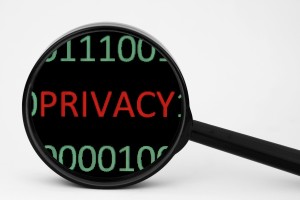 There has been a lot in the news lately about spying and the associated technologies used to aid said spying. Because of a leak by a contractor, it has been revealed that the US National Security Agency (NSA) has used a number of different technologies, including e-mail and phone surveillance, to spy on enemies of the state as well as regular citizenry identified as potential terrorists.
There has been a lot in the news lately about spying and the associated technologies used to aid said spying. Because of a leak by a contractor, it has been revealed that the US National Security Agency (NSA) has used a number of different technologies, including e-mail and phone surveillance, to spy on enemies of the state as well as regular citizenry identified as potential terrorists.
Technologies
In a recent New York Times post, author Vikas Bajaj suggests that “consumers have traded convenience for privacy”. We have the technology already to track the Internet activity of an individual. This includes e-mail archives and digital phone records, including conversations. With the advent of digital consumer technology, storing 1’s and 0’s is easy and increasingly more affordable with efficient data storage. The tools around big data make it easier to sort and pinpoint a particular thread. It is easy to capture, easy to store, and easy to sort. As an Internet consumer, is there more that we should know about these tools to be informed of our privacy and dealings?
Responsibility
When it comes to digital surveillance, what is our responsibility as a consumer? What is our responsibility as an IT practitioner? As a consumer of all things digital, I think it is our responsibility to understand the extent of which our presence is being tracked and understand that our activity on the Internet is not as private as we think. Think before you share all of your deepest, darkest secrets on Facebook. The old adage applies—“never do anything you wouldn’t want your mom to read about in the morning paper.” As IT practitioners, we may be called upon to gather data or turn over records to comply with a subpoena or court order. It is our responsibility to understand to what extent our customers and employees are protected in terms of privacy. Do you understand your company’s privacy policies? Are your customers and their records protected to some extent?
Solutions
The first solution is mentioned above and that is: be a smart consumer. Understand your presence on the Internet. Understand which sites provide a basic level of security and understand how your information moves about the Internet. The second is to understand and employ encryption techniques. This is especially important when handling customer personally identifiable information or PII. Make sure that this data is encrypted within your systems and while traveling across the network. Keep your own personal information secure and encrypted as well. Also, as an IT professional and a citizen of the cloud, you need to understand some of the techniques for preserving data such as private networks and private cloud computing.
Thoughts
Be aware before you share. Of course, all of the technology in the world is not going to stop your information from being extracted via a court order and, hopefully, you are never in that situation. For us upstanding citizens, it is imperative that we know how we are protected and how private and confidential our conversations and data really are or are not.
Do you stop to think about your privacy? Let me know your thoughts.
 About Kelly Brown
About Kelly Brown
Kelly Brown is an IT professional, adjunct faculty for the University of Oregon, and academic director of the UO Applied Information Management Master’s Degree Program. He writes about IT topics that keep him up at night.

